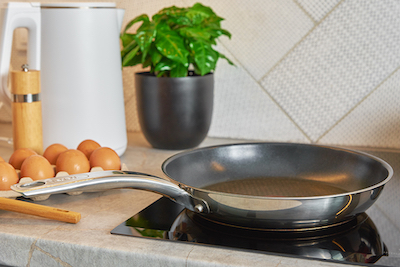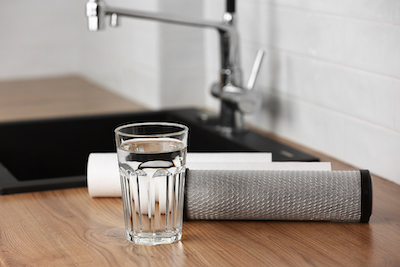The decision of whether to rent or buy a home is one of the most critical choices many individuals face throughout their lives. With significant financial, personal, and lifestyle implications, it’s crucial to make an informed decision. In this article, we will weigh the pros and cons of renting versus buying a home, explore the factors you should consider, and provide you with the tools to make the right decision for your unique situation.
Renting a Home: Pros and Cons
Pros:
- Flexibility: Renting offers the flexibility to move without the burden of selling a property. This flexibility is ideal for those whose jobs may require frequent relocation, or for individuals who are unsure about where they’d like to settle down long-term.
- No maintenance costs: Renting often means that the landlord is responsible for maintenance and repairs, saving you both time and money. This can be especially helpful for those who don’t have the skills or desire to handle home maintenance tasks.
- Financial predictability: Renting typically involves a fixed monthly expense, making it easier to budget for housing costs. Unlike homeowners, renters don’t have to worry about unexpected expenses like property tax increases, home repairs, or maintenance costs.
- Amenities: Many rental properties offer amenities like swimming pools, gyms, and community spaces that may be cost-prohibitive for individual homeowners.
Cons:
- No equity: When renting, your monthly payments do not contribute to building equity in a property, meaning you won’t benefit from the potential long-term appreciation of the home’s value.
- Limited control: As a renter, you have limited control over your living space. You may not be able to make significant changes, like painting walls or renovating the kitchen, without permission from the landlord.
- Rent increases: Rent prices can increase over time, making it challenging to predict long-term housing costs. Additionally, you may be subject to eviction or forced relocation if the landlord decides to sell the property or repurpose it.
Buying a Home: Pros and Cons
Pros:
- Building equity: Homeownership allows you to build equity over time as you pay down your mortgage and the property value appreciates. This equity can be used for future investments, such as buying a larger home or funding retirement.
- Potential for appreciation: Historically, real estate has appreciated in value over time. While there are no guarantees, owning a home can be a solid long-term investment that may provide you with financial security.
- Tax benefits: Homeowners may be eligible for various tax deductions, such as mortgage interest and property tax deductions, which can help offset the cost of ownership.
- Control and customization: Owning a home gives you complete control over your living space. You can make renovations, paint walls, and landscape your yard without needing permission from a landlord.
Cons:
- High upfront costs: Buying a home requires a significant upfront investment, including a down payment, closing costs, and moving expenses.
- Long-term commitment: Homeownership is a long-term commitment, making it less suitable for those who need the flexibility to move frequently or are uncertain about their long-term plans.
- Maintenance and repair costs: Homeowners are responsible for all maintenance and repair costs, which can be both time-consuming and expensive.
- Market fluctuations: The value of a home can fluctuate due to market conditions, potentially leading to financial loss if you need to sell during a downturn.
Factors to Consider When Deciding Between Renting and Buying
- Financial stability: Assess your financial stability, including your credit score, savings, and job security. Buying a home may be a good choice if you have a stable income, good credit, and sufficient savings for a down payment and emergency fund. If your financial situation is less stable, renting may be a more appropriate choice as it requires a smaller upfront investment and offers more flexibility in case of job loss or other financial setbacks.
- Length of stay: Consider how long you plan to stay in the area. If you expect to stay for at least five years, buying a home may be a more sensible option, as the costs of purchasing and selling a home are spread out over a longer period. However, if you anticipate moving within a few years, renting can provide greater flexibility and lower costs.
- Lifestyle preferences: Your personal lifestyle preferences play a significant role in deciding whether to rent or buy. If you prefer the freedom to move frequently, enjoy living in urban areas with easy access to amenities, or don’t want the responsibility of home maintenance, renting may be a better fit. Conversely, if you value stability, privacy, and the ability to customize your living space, homeownership may be more appealing.
- Market conditions: Research local real estate and rental markets to gain a better understanding of current conditions. In some cases, it may be more affordable to buy than to rent, or vice versa. Additionally, consider the long-term outlook for the local housing market, as this can impact the potential appreciation of your property if you decide to buy.
- Homeownership costs: Be sure to factor in all the costs associated with homeownership, including mortgage payments, property taxes, insurance, maintenance, and repair costs. Compare these expenses to the cost of renting to determine which option makes the most financial sense.
- Financial goals: Your long-term financial goals will also influence your decision. If building wealth through homeownership and real estate investments is a priority, buying a home may align better with your objectives. However, if you prefer to allocate your resources to other investments or experiences, renting may be a more suitable choice.
The decision to rent or buy a home is a deeply personal one, with no one-size-fits-all answer. By considering your financial stability, lifestyle preferences, length of stay, market conditions, and long-term goals, you can make an informed decision that best suits your unique situation. Remember that both renting and buying come with their own set of advantages and disadvantages. Ultimately, the right choice is the one that aligns with your priorities and provides you with the financial security and lifestyle you desire.














